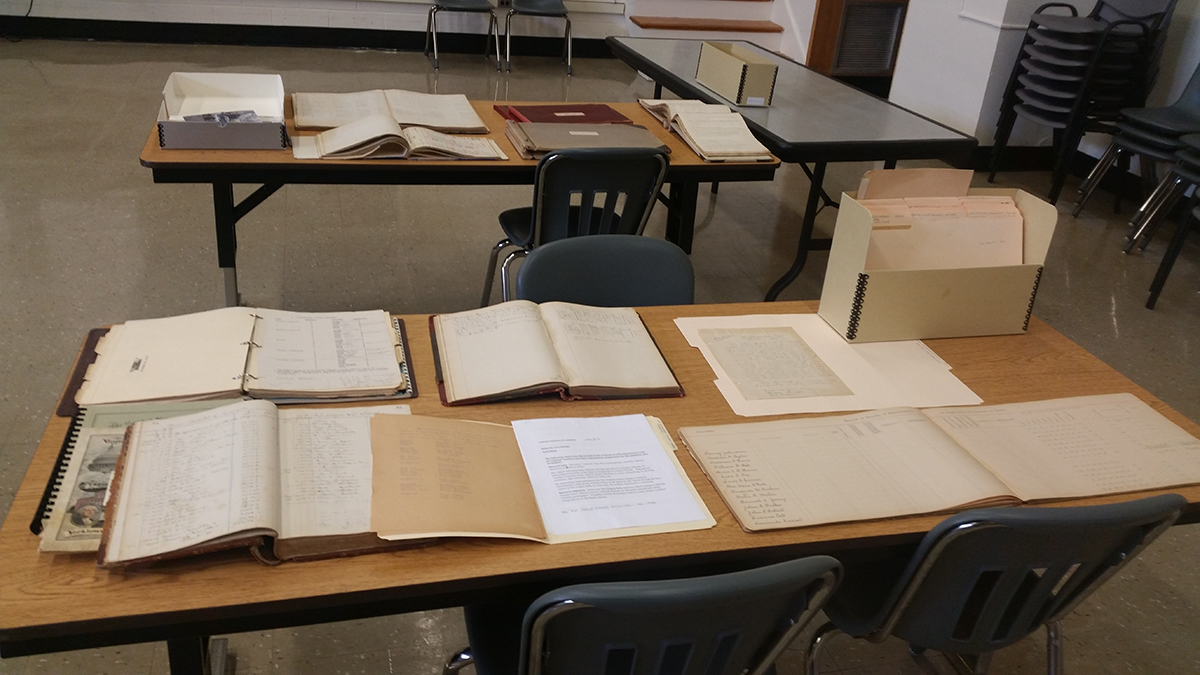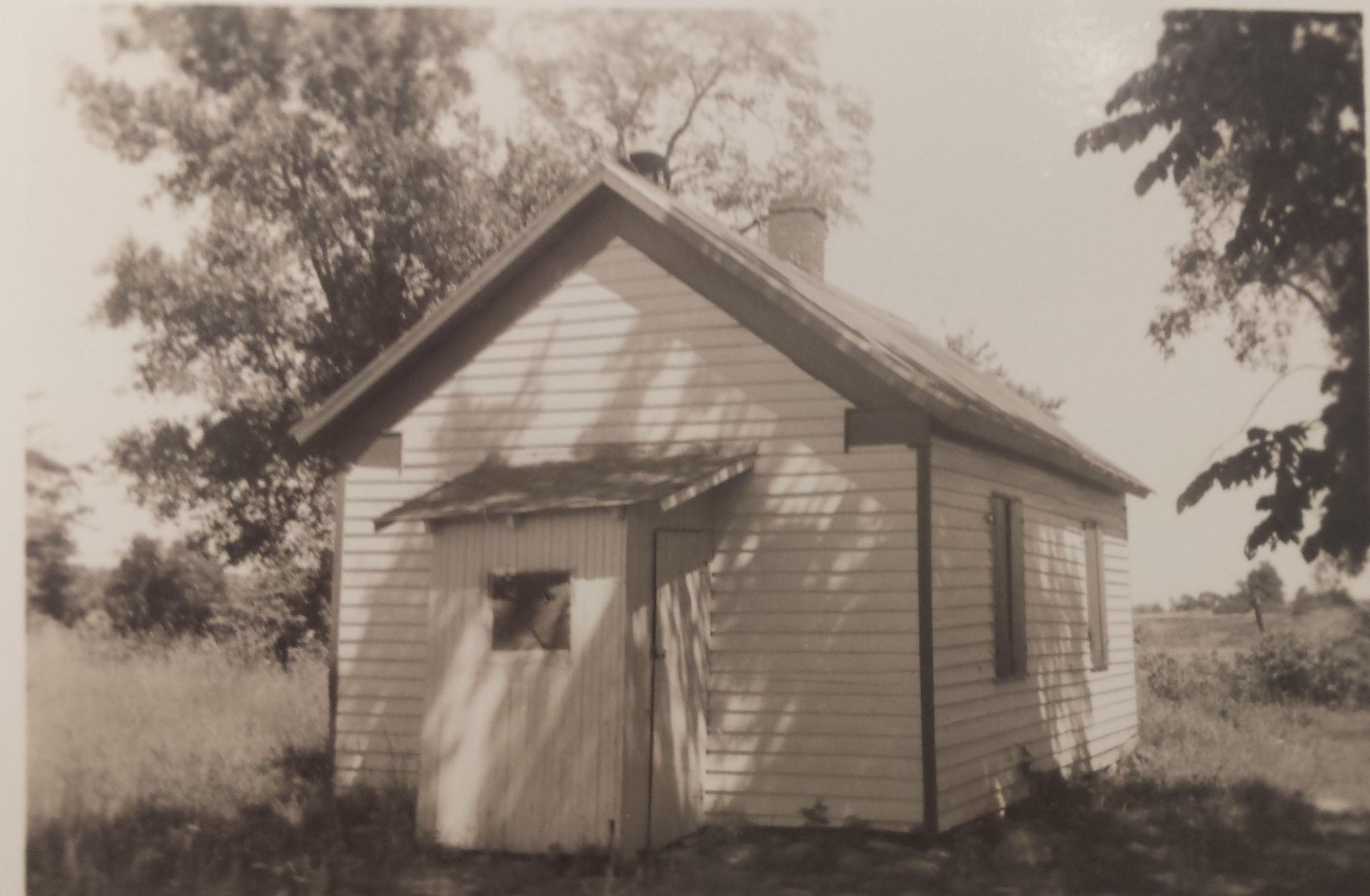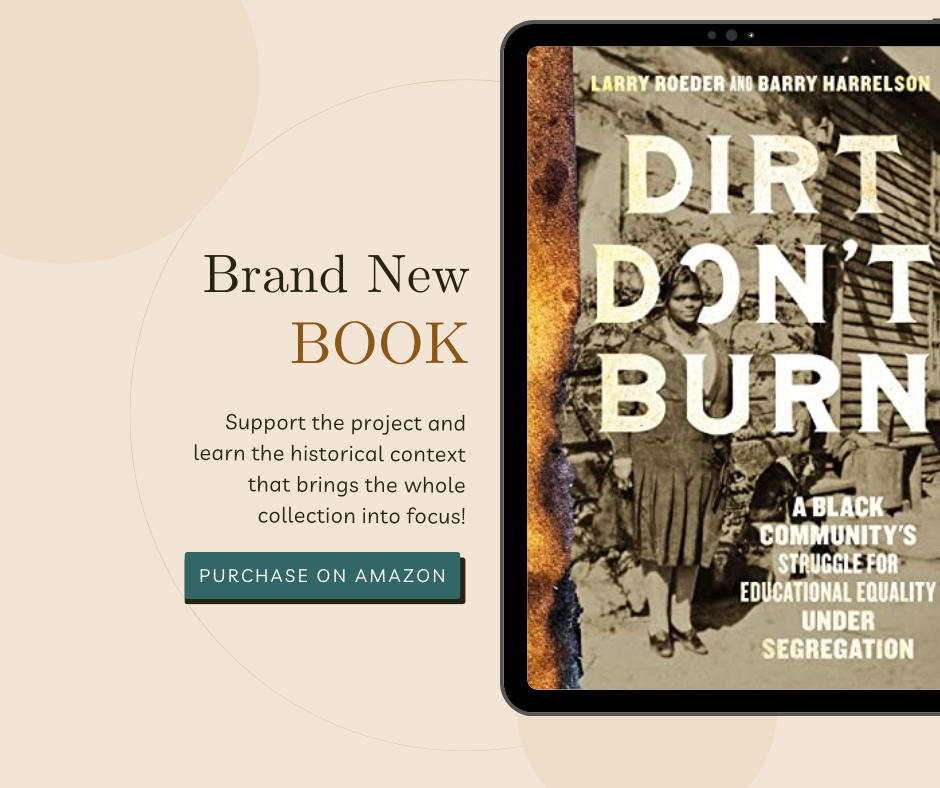A research resource on the period of segregation
in Loudoun County, Virginia
The Edwin Washington Project began when Loudoun County Public Schools (LCPS) recovered thousands of lost records covering the time period from 1864 to 1968 that were almost burned. LCPS asked local historian, Larry Roeder, who had previously documented the village of Conklin, to document these records. The project attracted volunteers and came to be known as the Edwin Washington Project (EWP). The EWP is seeking to archive and preserve these previously lost records and make them available for study and interpretation of the educational system during a pivotal time.

We are making digitized records and a finding aid available through this website. We also have many ongoing research projects including our new book Dirt Don't Burn.
Another important ongoing project is the digital mapping project of rural schools in Loudoun County.
About the Project
In June 1867, a black 16 year old named Edwin Washington worked in a hotel in Leesburg, Virginia for five dollars a month, plus board, with the “privilege of coming to school” in between errands. Unfortunately, this meant he couldn’t attend school on a regular basis or at all, during court weeks. Still, he went to class whenever he could.
What types of records do we have?
Petitions are one example of a collection set in the EWP archive. Petitions were used by Black parents to support their children during segregation. This video discusses how they were found and how they are preserved by the Edwin Washington Project.
Video interviews and production by: Katherine Hassler, Sebastian Segura and Jemison Goforth
Video directed and produced by Courtney Mickalonis.
Supporters
This project is in collaboration with the Records Office of the Loudoun County Public Schools, local history clubs, private and government archives and the Black History Committee of the Friends of the Balch Library, the Marshall House student exchange program, and Oatlands Historic House and Gardens.
The people who help with the project come from many walks of life and include retired and current academics, a former US diplomat, a cartographer and experts in data preservation, the internet and library/information science. We are ordinary citizens who share our individual skills and labor.
Make a Donation
Donations help us purchase archival materials, create a public space to access the collection, and pay for website and online collections.
Volunteer
Do you have a related skill or just an interest in helping?
Do you have information, photos or documents?
EWP and Community Partners would love to hear any information you have pertaining to schools and education during the period of segregation.
Contact us or find us on Facebook to add to the story!

